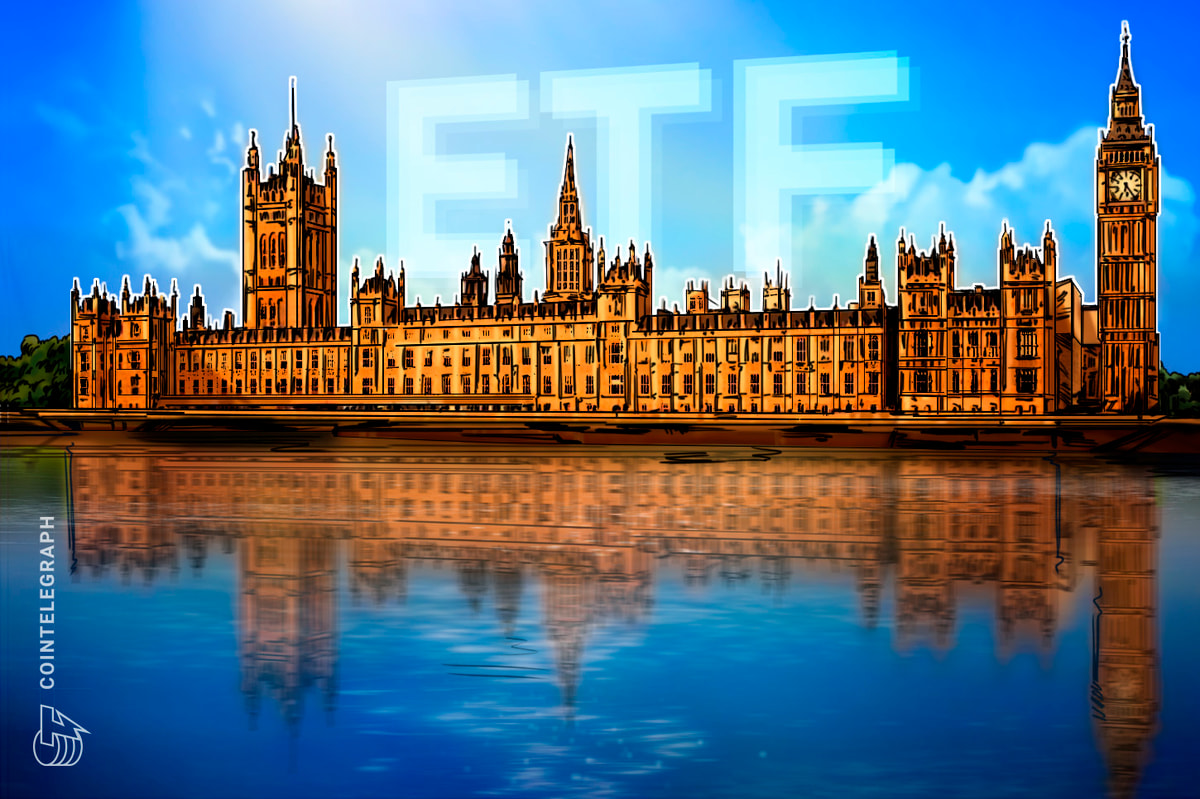For all the criticism of Trump and the risk of a global trade war, as Macron wants to unleash a trade war to elevate France to the top of the EU, if we just look at the data, we can see why Trump has taken this approach. Even those Republicans like Rand Paul joining the Democrats in calling tariffs a tax, none of them are looking at this issue objectively or seriously. Under the Biden Administration, not only was there a wholesale invasion of illegal immigrants, but on the trade front, he paid no attention at all, and most seemed to assume he was too senile to pay attention.
They are resoundingly calling Trump insane, mainly because they have something to lose. Free Trade has been one-sided. There is a risk that France will push to impose trade barriers against others to support their Marxist agenda. That will be devastating, but we see the world economy headed into a recession for the USA, yet a Depression for the EU. The fact that Trump imposed a 10% tariff on the UK but 20% on the EU is actually driving a wedge between Starmer’s dream of overruling BREXIT to get back into the Marxist utopia of the EU.
In addition, the belligerence of Macron is having an impact. There is a growing discontent with the European Union and the 20% tariff on the EU, with Macron vowing that full retaliation may prove to be the wedge that starts the fragmentation of the EU. Hungary has its own currency and can quickly leave the EU and resume trade with both the USA and Russia. Ukraine has long suppressed the Hungarian people trapped within the boundaries of Ukraine. The same is true for all of those members questioning the EU yet did not join the euro.

While all we hear is how the Smoot-Hawley Tariff caused the Great Depression, that was total fiction. Here is a chart of US tariffs since 1784. The Smoot-Hawley tariff was on Agriculture in 1930. The Socialist economist omitted the sovereign defaults of 1931, which included Canada, Europe, South America, and much of Asia.


 The causes of the Great Depression have been debated for decades. The problem with all of the analysis is this same attempt to reduce the cause to a single event. In school, we read The Great Crash by Galbraith. He was a socialist, so he blamed the corporations and never bothered to mention the Sovereign Defaults of 1931, for that would have accused the government instead of the private sector. Then there is the argument that the tariffs at least “contributed” to the Great Depression, if they were the leading factor, again disregarding the Sovereign Debt defaults.
The causes of the Great Depression have been debated for decades. The problem with all of the analysis is this same attempt to reduce the cause to a single event. In school, we read The Great Crash by Galbraith. He was a socialist, so he blamed the corporations and never bothered to mention the Sovereign Defaults of 1931, for that would have accused the government instead of the private sector. Then there is the argument that the tariffs at least “contributed” to the Great Depression, if they were the leading factor, again disregarding the Sovereign Debt defaults.
Smoot-Hawley wasn’t signed into law until June 17th, 1930, when stocks had already taken a nosedive from the September 1929 high. Cato Institute’s Alan Reynolds argued that Smoot-Hawley was an ongoing drag on the economy and that it was, in fact, a substantial contribution to the stock market, arguing that traders saw it coming and acted in anticipation. The argument on the one hand correctly states that traders acted in anticipation. Still, it incorrectly adopts the position that BUT FOR the tariff issue, the stock market would have continued higher anyway?
Moreover, the pretense that somehow the Smoot-Hawley Tariff created or contributed to the Great Depression, ignoring the European Sovereign Debt Crisis, is really a specious argument. This ignores the entire issue of tariffs that predate the Smoot-Hawley Act. The Emergency Tariff Act of 1921 was a stopgap tariff measure that was rushed out and put in place until Congress could deal with the issue. The Republican Party wanted to quickly reverse the low rates of the Underwood-Simmons Tariff of the Wilson administration, prewar. Protectionism had never died out but remained merely dormant on the back burner during World War I. After the war, the supporters of tariffs based their arguments on economics and nationalism. They argued that the economic prosperity during the war, as America produced food for Europe and goods, unfolded because there was no competition from imports. Therefore, the abundance of exports created the economic boom (the German export model today, which lurks behind the euro). While on the surface this was correct, they overlooked the problem that Europe could not produce during the war, and therefore, American production sustained Europe. The dominant argument was that the war had ended, and European imports would increase, threatening the current economic prosperity.
The protectionists further argued using nationalism, stating that Americans would now suffer economic hardship after sending our boys to fight in a war that America did not start. They argued that America should remain in isolationism as a policy, staying out of international affairs. Indeed, Roosevelt could not get the USA involved in World War II until the Japanese bombed Pearl Harbor. The attitude toward isolationism and nationalism was very strong in the United States. After World War II, the Deep State pushed for maintaining a global power, ending isolationism with the invention of nuclear weapons.

Nationalism was on the rise in the United States, as the Senate, in the last days of the Wilson administration, voted against joining the League of Nations. It had been Wilson’s idea that he could not sell to Congress. Isolationism, nationalism, and the concern for continued prosperity merged and supported the protectionists in pushing their arguments for higher protective tariffs. These trends led to the passage of the Emergency Tariff in 1921 and then to the Fordney-McCumber Tariff a year later. The rates of these tariffs rivaled the protectionist Payne-Aldrich Tariff of 1909 and were considerably higher than the Underwood-Simmons Tariff passed in 1913. Tariffs were in place throughout the 1920s. Smoot-Hawley has been criticised as a major cause of the Great Depression, with no mention of the tariffs that predated the 1930 legislation.
The tariff issue was by no means something that was scaring the stock market. The trend from 1927 to 1929 was a significant shift in assets from bonds to equities as hints of a European debt crisis appeared on the horizon. The smart money began to see that the real crisis was debt. This is a serious problem for even today the debt to equity ratio has varied from 7:1 to 10:1. When only a tiny portion of smart money begins to shift to equities, this becomes a bottle-neck and what happens is prices rise exponentially in what I have labeled a “Phase Transition” meaning that prices at least DOUBLE. This is not really Asset Inflation, where assets merely rise in proportion to the decline in the currency. A “Phase Transition” typically marks a shift in capital whereby it concentrates into one sector and often one country.

 Irving Fisher (1867-1947) was a prominent economist of the day who lost his credibility when he said the market had reached a new plateau and thus it would not crash. Part of his reasoning was this shift in capital from bonds to equities. He did not realize that this is a phenomenon I call a Phase Transition, which signals the end of a trend and not the beginning. The shift from bonds to equities can lead to a new plateau, PROVIDED it takes place gradually as a trend. When it erupts short-term and causes a doubling in price, this is a warning sign that we are dealing with a bubble rather than a broad band shift in the investment trend, as was the case following the turn of the Economic Confidence Model back in 1985. In that case, when the Dow Jones Industrials were at the 1,000 level, we forecast that the Dow Jones Industrial Average would see 6,000 in a few years. That was the shift in trend for cyclically the new wave was beginning, not ending, and we would move into a Private Wave (shift to equities) and were concluding the end of a Public Wave (when bonds are the #1 investment strategy).
Irving Fisher (1867-1947) was a prominent economist of the day who lost his credibility when he said the market had reached a new plateau and thus it would not crash. Part of his reasoning was this shift in capital from bonds to equities. He did not realize that this is a phenomenon I call a Phase Transition, which signals the end of a trend and not the beginning. The shift from bonds to equities can lead to a new plateau, PROVIDED it takes place gradually as a trend. When it erupts short-term and causes a doubling in price, this is a warning sign that we are dealing with a bubble rather than a broad band shift in the investment trend, as was the case following the turn of the Economic Confidence Model back in 1985. In that case, when the Dow Jones Industrials were at the 1,000 level, we forecast that the Dow Jones Industrial Average would see 6,000 in a few years. That was the shift in trend for cyclically the new wave was beginning, not ending, and we would move into a Private Wave (shift to equities) and were concluding the end of a Public Wave (when bonds are the #1 investment strategy).
 To understand the entire Smoot-Hawley Tariffs which are blamed by most economists for contributing to the Great Depression, we must look at the whole economy both globally and domestically. It was in 1927 when there was not merely a secret meeting of the four main central banks that conspired to lower US interest rates in the hope of deflecting the capital flows back to Europe, but also the League of Nations’ World Economic Conference, which also met at Geneva that year. At that conference, it was officially concluded that “the time has come to put an end to tariffs, and to move in the opposite direction.”
To understand the entire Smoot-Hawley Tariffs which are blamed by most economists for contributing to the Great Depression, we must look at the whole economy both globally and domestically. It was in 1927 when there was not merely a secret meeting of the four main central banks that conspired to lower US interest rates in the hope of deflecting the capital flows back to Europe, but also the League of Nations’ World Economic Conference, which also met at Geneva that year. At that conference, it was officially concluded that “the time has come to put an end to tariffs, and to move in the opposite direction.”
The resentment toward Germany was really too great, particularly for the French. This was despite the fact that the German government had been overthrown in the 1918 Revolution that created the Weimar Republic. The reparation payments imposed on Germany led to the revolution in 1918 and the overthrow of the German Emperor. These payments could only be made through gold, services, or goods. The German people were being punished for the actions of the political leaders. France broke ranks and began in 1928, enacting a new tariff law and quota system. This was targeted at Germany, and if they could not sell goods internationally, then they could not make reparation payments. This would eventually lead to proposals to allow Austria and Germany to merge in 1931, to which the French began shorting German bonds in the marketplace. The punishment of Germany led to the rise of Hitler. They failed to distinguish between the previous government and the German people.

 Additionally, the economic shift in trend due to the innovation of electricity combined with the combustion engine had drastically altered the economy. In 1900, about 40% of the civil workforce was employed in agriculture. By the late 1920s, the United States economy had changed remarkably. There were exceptional gains in productivity due to electrification, which increased production of goods, and the combustion engine, which profoundly altered agricultural production. With tractors replacing horses and mules, up to 25% of the agricultural land had previously been used to feed horses and mules. This land suddenly became available to produce crops. The ability to produce food soared and exceeded market demand, creating what was called overproduction and underconsumption.
Additionally, the economic shift in trend due to the innovation of electricity combined with the combustion engine had drastically altered the economy. In 1900, about 40% of the civil workforce was employed in agriculture. By the late 1920s, the United States economy had changed remarkably. There were exceptional gains in productivity due to electrification, which increased production of goods, and the combustion engine, which profoundly altered agricultural production. With tractors replacing horses and mules, up to 25% of the agricultural land had previously been used to feed horses and mules. This land suddenly became available to produce crops. The ability to produce food soared and exceeded market demand, creating what was called overproduction and underconsumption.
This is what Senator Reed Smoot, who was a Republican from Utah and chairman of the Senate Finance Committee, and Congressman Willis C. Hawley, who was a Republican from Oregon and chairman of the House Ways and Means Committee, were focused on listening to farmers who wanted high tariffs to prevent competition. Neither Utah nor Oregon was an industrial state. Smoot-Hawley was to protect farmers from falling prices not due to imports as much as it was to overproduction, much as the Silver Democrats had done for miners during the second half of the 19th Century.
Nonetheless, because of World War I and the wholesale destruction of the European economy, the United States was still running a trade account surplus as manufactured exports of goods were rising rapidly. Therefore, Smoot was looking primarily at food exports, which had been declining as Europe found it easier to restore agricultural production than to manufacture goods requiring the construction of plants. The actual value of food imports was a little over half that of manufactured imports, and thus, the farmers were crying for help in an industry that was changing forever. It was NOT true that the markets were so concerned about tariffs when industrial production was in a trade surplus and profits were rising.
Senator Reed Smoot, a Republican from Utah and chairman of the Senate Finance Committee, championed a tariff increase in 1929, which became the Smoot–Hawley Tariff Bill. In his memoirs, Smoot explained: “The world is paying for its ruthless destruction of life and property in the World War and for its failure to adjust purchasing power to productive capacity during the industrial revolution of the decade following the war.” This was a partially correct statement, but he overlooked the dramatic change in the economic foundation set in motion by the innovation of electricity and the combustion engine.

The 1928 Presidential election saw Herbert Hoover promise to help the farmers by increasing tariffs on agricultural products. Upon winning the election, Hoover did ask Congress for an increase in tariff rates for agricultural goods and a decrease in rates for industrial goods. He saw this as a balancing act to appease trading partner nations. Indeed, the House passed a version of the act in May 1929, increasing tariffs on primarily agricultural products. Those who have blamed the Smoot-Hawley Act as a significant cause of the 1929 Crash argue that when the House passed the bill on May 28th, 1929, which was the first version, the stock market was battered. This is not true.
The bill was passed on Monday, 28th, which was the low point, and it was not attributed to the tariff bill. On May 3oth that week, the British elections took place and ended in a hung Parliament, which was regarded politically as a crisis. The following day, the Ford Motor Company signed a nine-year contract with the Soviet Union. The Soviets agreed to purchase $30 million worth of Ford products within four years, while Ford decided to provide technical advice and help build an automobile factory in Nizhny Novgorod. To say the market responded negatively in May 1929 in “anticipation” of the tariffs was simply not true. There was a clear distinction between agriculture and industrial imports.

 Those who blame tariffs further argue that on Wednesday, October 23rd, 1929, it became clear the tariffs would be much broader than first believed. Again, they portray the tariffs as the reason for the crash. I found no headlines to support that interpretation, which appears to be predetermined. That very day of the 23rd, the bankers attempted to support the market. The downside of such intervention is that when it fails, confidence collapses completely. Also on that day, there was an assassination attempt on the Italian Crown Prince. He narrowly escaped with his life. Americans were concerned that Europe was still fighting among itself, which was entirely correct. The resentment concerning Germany was massive and would not just fade away gracefully.
Those who blame tariffs further argue that on Wednesday, October 23rd, 1929, it became clear the tariffs would be much broader than first believed. Again, they portray the tariffs as the reason for the crash. I found no headlines to support that interpretation, which appears to be predetermined. That very day of the 23rd, the bankers attempted to support the market. The downside of such intervention is that when it fails, confidence collapses completely. Also on that day, there was an assassination attempt on the Italian Crown Prince. He narrowly escaped with his life. Americans were concerned that Europe was still fighting among itself, which was entirely correct. The resentment concerning Germany was massive and would not just fade away gracefully.
 This focus on tariffs as the culprit for creating the crash was an argument from the Democrats, as they did against Reagan with “trickle-down” economics. Along with such tariff proposals, some of the senators advocated a detailed investigation of the Federal Reserve Banking system, as put forth in the pending resolution of Senator William Henry King (1863 – 1949) who was also a Democratic representative from Salt Lake City, Utah who served in the Senate from 1917 until 1941. There was a secret meeting of central bankers to lower US rates in hopes of deflecting capital flows back to Europe to ease the debt crisis building there.
This focus on tariffs as the culprit for creating the crash was an argument from the Democrats, as they did against Reagan with “trickle-down” economics. Along with such tariff proposals, some of the senators advocated a detailed investigation of the Federal Reserve Banking system, as put forth in the pending resolution of Senator William Henry King (1863 – 1949) who was also a Democratic representative from Salt Lake City, Utah who served in the Senate from 1917 until 1941. There was a secret meeting of central bankers to lower US rates in hopes of deflecting capital flows back to Europe to ease the debt crisis building there.
Senator Carter Glass (1858 – 1946) of Virginia, who was one of the authors of the Federal Reserve banking act and then the Glass-Steagall Act, also in the midst of the October crash, started pushing his bill providing for the imposition of a 5% excise tax on sales of stock which had not been held over sixty days. It was his present plan to offer the bill as a “rider” to the pending tariff bill. To say that people feared the tariffs, which really did not impact the industrial stocks, is absolutely absurd. They were concerned about a 5% tax on stock investment that the Democrats were trying to stuff into the Tariff Act. The Democrats contributed to creating the crash in 1929 with these proposals, arguing against the rich.

 There was also talk of an investigation into the stock market decline to blame someone. Eventually, this would take place and lead to the creation of the Securities & Exchange Commission (SEC). In his memoirs, Herbert Hoover apologized for the investigation into the stock market. On top of that, two men were arrested for placing a car on the train track, which would have wrecked the coming train carrying President Herbert Hoover. No headlines I found covered tariffs as some dark omen for the economy at this junction, is the timeline.
There was also talk of an investigation into the stock market decline to blame someone. Eventually, this would take place and lead to the creation of the Securities & Exchange Commission (SEC). In his memoirs, Herbert Hoover apologized for the investigation into the stock market. On top of that, two men were arrested for placing a car on the train track, which would have wrecked the coming train carrying President Herbert Hoover. No headlines I found covered tariffs as some dark omen for the economy at this junction, is the timeline.
The Senate debated its tariff bill until March 1930, with many Senators trading votes based on their states’ industries. Republicans did not purely support it. The Senate bill passed with 39 Republicans and 5 Democrats voting in favor of the bill because they were from farming states. The conference committee then aligned the two versions by moving to the more significant House tariffs. The House passed the conference bill on a vote of 222 to 153, with the support of 208 Republicans and 14 Democrats. The farmers primarily influenced the Democrats who voted for the bill. The Tariff Act of 1930 (codified at 19 U.S.C. ch. 4), commonly known as the Smoot–Hawley Tariff or Hawley–Smoot Tariff, implementing what would be called “protectionist” trade policies was signed into law on June 17th, 1930. Once again, when Smoot-Hawley was passed, I found no damning headlines how this would end the economy.


The bankers were in once again, attempting to manipulate and save the market on the day the Smoot-Hawley Act was enacted. I found no commentary that attributed the decline to the tariff issue. The day the bill was signed, the Democrats argued that the crash was because of the Tariff Act, which completely ignored everything else and was used simply as a political criticism of the Republicans. As the press wrote: “It increased duties on sugar, shoes, lumber, cement, bricks and wool and hides, particularly, aroused the Senate to the most extreme political debate in recent times.” Sadly, because the Democrats kept trying to blame the Great Depression on the Republicans, we have the entire tariffs issue still to this day present a view of creating the crisis, which was simply not true. It was the wholesale default of Sovereign Debt sold by investment banks to the average American public in small denominations. This wiped out people’s savings and resulted in the wholesale default of thousands of American banks, not tariffs.

 Spending was being cut, especially for the military. The debate was thus really focused on the cut in spending and the tariff issue on top of aid to Europe. Many in Congress began to consider the Europeans, calling them the “GIMME BOYS,” for they wanted free access to the US market while blocking access to their markets to rebuild their economies.
Spending was being cut, especially for the military. The debate was thus really focused on the cut in spending and the tariff issue on top of aid to Europe. Many in Congress began to consider the Europeans, calling them the “GIMME BOYS,” for they wanted free access to the US market while blocking access to their markets to rebuild their economies.
We have to understand that the entire tariff issue began because of the overproduction of agriculture, which had been 40% of the entire civil workforce. The economy was transforming from an agricultural-based system to one of industrialization. Politicians did not understand this economic transformation at this point in time.
Then, in 1931, the rug was pulled out from under the world economy. The bankers’ attempts to support the market failed, and it kept declining, so the confidence level kept declining. The government and the bankers were suddenly cast in a light of total incompetence. Survival became dependent upon oneself. Investors in the stock market were now being hunted. Anyone who was short was being investigated. The Senate eventually held hearings, subpoenaing countless people and interrogating them about their stock holdings. On March 2nd, 1932, senators passed Senate Resolution 84 authorizing the Committee on Banking and Currency to investigate “practices with respect to the buying and selling and the borrowing and lending” of stocks and securities. The committee made little progress, however, during its first 11 months. Banking executives repeatedly denied committee requests for bank records and internal documents. Witnesses easily evaded questions posed by counsel.

In early 1933, Banking and Currency Chairman Peter Norbeck (R-SD) hired a new chief counsel, former New York deputy district attorney Ferdinand Pecora. Norbeck called him a “happy discovery.” In April 1933 the new committee chairman Duncan Fletcher (D-FL) offered Senate Resolution 56, expanding the scope of the inquiry to include private banking practices. It was from this assault upon the banking and stock market that the Securities & Exchange Commission (SEC) was born, and the lead prosecutor, Pecora, would become a founding member of the SEC.
 The Creditanstalt Bank in Vienna failed on May 11th, 1931, leading to a national currency crisis as investors began pulling their funds from Austrian banks and moving them to other countries. Meanwhile, Germany was in the throes of political turmoil, leaning toward fascism. It was on May 8th, 1931, that the prosecution of Adolf Hitler by Hans Litten (1903-1938) for complicity in manslaughter committed by members of the Sturmabteilung at the Tanzpalast Eden (“Eden Dance Palace”) in Berlin in 1930 was dismissed. Litten was eventually arrested on the night of the Reichstag fire along with other progressive lawyers and leftists. Litten spent the rest of his life in German concentration camps, was tortured, and was constantly subjected to grueling interrogations. Finally, after five years of this treatment, cut off from all outside communication, he committed suicide. His attempt to stop Hitler’s rise was admirable, but it came at such a personal cost.
The Creditanstalt Bank in Vienna failed on May 11th, 1931, leading to a national currency crisis as investors began pulling their funds from Austrian banks and moving them to other countries. Meanwhile, Germany was in the throes of political turmoil, leaning toward fascism. It was on May 8th, 1931, that the prosecution of Adolf Hitler by Hans Litten (1903-1938) for complicity in manslaughter committed by members of the Sturmabteilung at the Tanzpalast Eden (“Eden Dance Palace”) in Berlin in 1930 was dismissed. Litten was eventually arrested on the night of the Reichstag fire along with other progressive lawyers and leftists. Litten spent the rest of his life in German concentration camps, was tortured, and was constantly subjected to grueling interrogations. Finally, after five years of this treatment, cut off from all outside communication, he committed suicide. His attempt to stop Hitler’s rise was admirable, but it came at such a personal cost.
 To argue that the tariffs were even a significant cause of the Great Depression is really ridiculous. It was the product of Democratic propaganda to blame the Republicans for everything, which worked in the end. The real cause that wiped out the world economy came from Sovereign Debt Defaults. Because these were sold in small denominations to the average public, those who believed the stock market was risky and bought bonds suffered the total loss of their investment.
To argue that the tariffs were even a significant cause of the Great Depression is really ridiculous. It was the product of Democratic propaganda to blame the Republicans for everything, which worked in the end. The real cause that wiped out the world economy came from Sovereign Debt Defaults. Because these were sold in small denominations to the average public, those who believed the stock market was risky and bought bonds suffered the total loss of their investment.
Here is a chart of the bonds that were once listed on the New York Stock Exchange. We can see the collapse in the value of bonds dwarfed that of equities. While the Dow Jones Industrials collapsed by 89%, the bonds collapse 100% and never returned. The collapse in debt saw American municipal also suspend payments. The City of Detroit suspended debt payments in 1937 and resumed in 1963 so they can claim they never defaulted.
The collapse in the bond markets was far more serious than tariffs.























